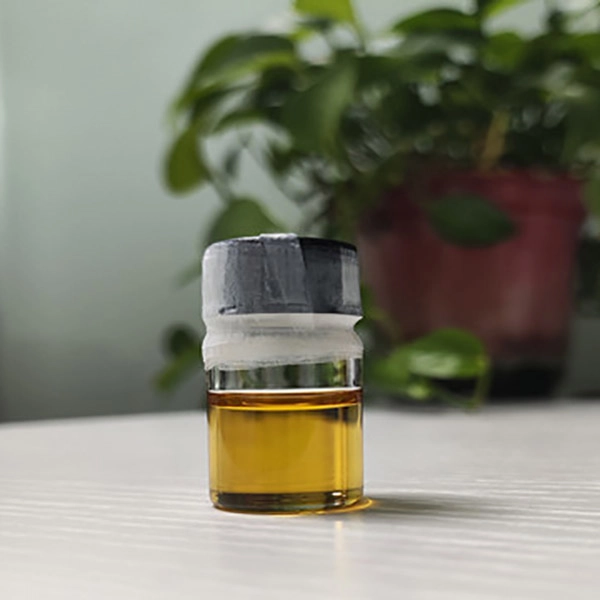+86-15212299029
- All
- Product Name
- Product Keyword
- Product Model
- Product Summary
- Product Description
- Multi Field Search
Views: 220 Author: tcchems Publish Time: 2025-10-31 Origin: Site











Content Menu
● Understanding Low Porosity Hair
● The Benefits of Vitamin E Oil for Hair
● How to Use Vitamin E Oil on Low Porosity Hair
● Other Oils Beneficial for Low Porosity Hair
>> 2. Argan Oil
● Tips for Caring for Low Porosity Hair
>> 1. Use Lightweight Products
>> 2. Apply Products to Damp Hair
Low porosity hair can be a challenge to manage, as it tends to resist moisture and can often feel dry and brittle. One of the most discussed solutions for improving the health of low porosity hair is the use of oils, particularly vitamin E oil. This article will explore the benefits of vitamin E oil for low porosity hair, how to use it effectively, and other oils that can complement its effects.

Low porosity hair is characterized by tightly packed cuticles that make it difficult for moisture to penetrate the hair shaft. This type of hair often appears shiny but can feel dry and brittle. It tends to resist moisture from conditioners and treatments, leading to a buildup of products on the hair's surface.
- Water Resistance: When you wet your hair, it takes a long time to become fully saturated.
- Product Buildup: You may notice that products sit on your hair rather than being absorbed.
- Dryness: Despite using moisturizing products, your hair may still feel dry and brittle.
- Shiny Appearance: Low porosity hair often has a shiny look due to the tightly closed cuticles.
Vitamin E oil is renowned for its numerous benefits for hair health. Here are some key advantages:
Vitamin E oil is an excellent moisturizer. It helps to seal in moisture, which is crucial for low porosity hair that struggles to absorb water. By applying vitamin E oil, you can create a barrier that prevents moisture loss.
Vitamin E is a powerful antioxidant that helps protect hair from oxidative stress caused by environmental factors. This protection can lead to healthier hair and a reduction in damage over time.
A healthy scalp is essential for hair growth. Vitamin E oil can improve blood circulation in the scalp, promoting healthier hair follicles and potentially leading to increased hair growth.
By nourishing the hair shaft, vitamin E oil can help reduce breakage and split ends. This is particularly beneficial for low porosity hair, which can be prone to damage due to its structure.
Using vitamin E oil as a pre-shampoo treatment can be highly effective. Here's how to do it:
1. Warm the Oil: Slightly warm a small amount of vitamin E oil. This helps it penetrate the hair shaft more effectively.
2. Apply to Dry Hair: Apply the warm oil to dry hair, focusing on the ends and any particularly dry areas.
3. Leave it On: Allow the oil to sit for at least 30 minutes. For deeper conditioning, you can leave it on overnight.
4. Shampoo and Condition: Wash your hair with a gentle shampoo and follow up with a conditioner.
Vitamin E oil can also be used as a leave-in treatment:
1. Dilute the Oil: Mix a few drops of vitamin E oil with a carrier oil like jojoba or argan oil.
2. Apply to Damp Hair: After washing your hair, apply the mixture to damp hair, focusing on the ends.
3. Style as Usual: Style your hair as you normally would. This will help lock in moisture and add shine.
Incorporating vitamin E oil into hair masks can enhance their effectiveness:
1. Mix Ingredients: Combine vitamin E oil with other nourishing ingredients like honey, avocado, or yogurt.
2. Apply to Hair: Apply the mask to clean, damp hair and leave it on for 30-60 minutes.
3. Rinse Thoroughly: Rinse out the mask and follow with your regular shampoo and conditioner.
While vitamin E oil is beneficial, there are other oils that can also help manage low porosity hair effectively.
Jojoba oil closely resembles the natural sebum produced by the scalp, making it easily absorbed. It helps to balance moisture levels and prevent dryness without weighing the hair down.
Known as "liquid gold," argan oil is lightweight and rich in fatty acids and vitamin E. It penetrates the hair shaft effectively, providing hydration and reducing breakage.
Grapeseed oil is another lightweight option that is high in vitamin E. It helps seal in moisture and adds softness without leaving a greasy residue.
Sweet almond oil is light and easily absorbed, making it a great choice for low porosity hair. It adds shine and helps to soften the hair.
Rich in fatty acids and antioxidants, rosehip oil can nourish the scalp and hair, promoting overall hair health.
Opt for lightweight, water-based products that won't weigh your hair down. Look for ingredients like aloe vera and glycerin, which can hydrate without buildup.
Applying products to damp hair can help them penetrate better. After washing, gently blot your hair with a towel and apply your products while it's still slightly wet.
The LOC method (Liquid, Oil, Cream) is effective for low porosity hair. Start with a liquid (like water or a leave-in conditioner), follow with an oil (like vitamin E or jojoba), and finish with a cream to lock in moisture.
Steer clear of heavy oils like coconut oil and shea butter, which can lead to buildup and weigh down low porosity hair.
Incorporating regular scalp massages can improve blood circulation and promote healthier hair growth.
Vitamin E oil can be a valuable addition to the hair care routine of those with low porosity hair. Its moisturizing properties, combined with its ability to protect and nourish the scalp, make it an excellent choice for enhancing hair health. When used correctly, along with other lightweight oils, vitamin E oil can help manage the unique challenges of low porosity hair, leading to softer, shinier, and healthier locks.

1. Can I use vitamin E oil every day on my hair?
While vitamin E oil is beneficial, using it daily may lead to buildup. It's best to use it a few times a week.
2. Is vitamin E oil suitable for all hair types?
Yes, vitamin E oil can benefit all hair types, but those with low porosity hair should use it sparingly to avoid heaviness.
3. How can I tell if my hair is low porosity?
If your hair takes a long time to get wet and products tend to sit on the surface, you likely have low porosity hair.
4. What are the best oils for low porosity hair?
Lightweight oils like jojoba, argan, and grapeseed oil are ideal for low porosity hair.
5. Can vitamin E oil help with hair growth?
Yes, vitamin E oil can promote a healthy scalp and improve blood circulation, which may support hair growth.
Hot Tags: China, Global, OEM, private label, manufacturers, factory, suppliers, manufacturing company



